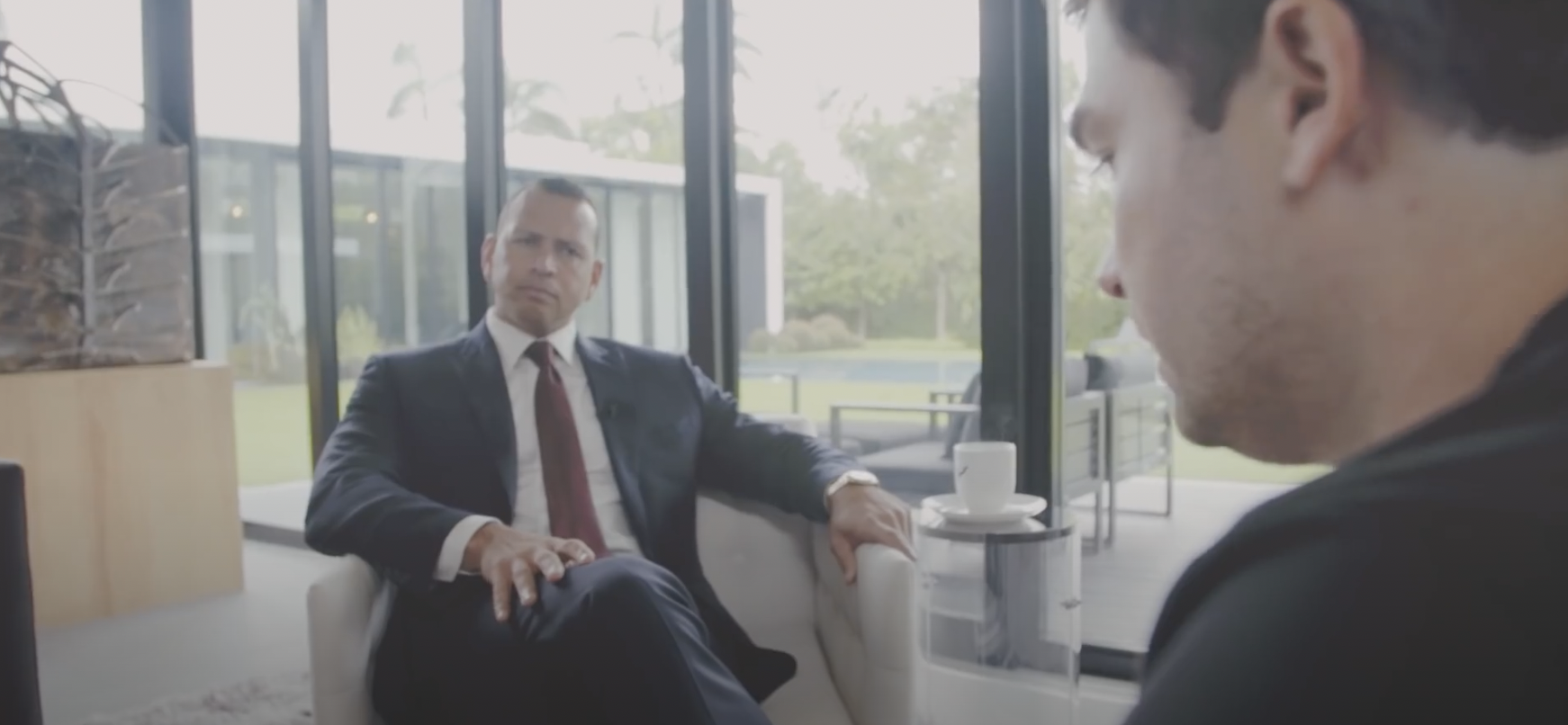Mindset Is the #1 Factor In Business Success - Here's Why
There's no way to beat around the bush... What ultimately determines whether you achieve business success or not is the state of your mindset.
Got a negative mindset? Expect negative outcomes!
On the flip side... Got a positive mindset? Expect positive outcomes!
It's as simple as that.
To help get your mindset in the green AND prove to you the importance of mindset in business, we're sharing 8 of the most important traits of a success-oriented mindset. These traits are absolutely essential if you want to see success in your own business!
Having these 8 mindset traits is the primary reason why some entrepreneurs achieve success while others don't.
Bottom line: Having the right mindset is the #1 factor in achieving business success. Therefore, you must make the shift to having the kind of mindset that fosters success.
Here’s how mindset works with success, and how you can get your mindset in the right before it’s too late!
-2.jpg?width=717&name=1%20(1)-2.jpg)
What Is a Mindset?
To put it simply, a mindset is the accumulation of the thoughts one thinks.
Therefore, thoughts are the most important factor in the success of a business because they are the foundation of the mindset.
In terms of how much they benefit or hinder your success, thoughts can be high-quality, low-quality, or somewhere in between.
Still not getting what makes mindset so important?
Here's how it works: The thoughts in your mind determine the emotions you feel. Then, the emotions you feel determine what actions you take. Finally, the actions you take determine your outcomes.
For example… Imagine you think that you are bad at being a CEO. Because you think that way, you’ll automatically feel horrible about yourself. When you feel horrible about yourself, you take that negativity out on your team members. As a result, your business suffers!
On the other hand, if you believe you are a great CEO, then you will feel great about yourself! Because you feel great, you’ll be confident making the kinds of challenging moves that the owner of a successful company would make!
That being said, your mindset has to be full of the right thoughts so that you feel the right emotions, and ultimately make the right decisions to run a successful business.
Want to get your mindset right?
Adopting the 8 mindset traits below is a great place to start! Remember, adopting them is easy because they are simply thoughts you think.
After adopting the 8 thoughts, you’ll realize that mindset truly is the most important factor in the success of a business.
8 Mindset Traits That Determine Your Success In Business
Now without further ado, here are 8 mindset traits that will ultimately determine whether or not you set your business on the path to success.
As we mentioned above, these 8 traits are simple thoughts... Thinking the right thoughts is the foundation of the mindset and becoming successful.
Moreover, if you don’t fully adopt these 8 thoughts, then you will feel the wrong emotions. And if you feel the wrong emotions, you won't take the proper actions necessary to grow a successful business.
Mindset is the #1 factor in determining whether businesses fail or succeed. Will you be a successful entrepreneur, or let your thoughts get the best of you and never live up to your full potential?
Openness to Learning Is the Path to Success Itself
If you want to become a successful CEO (and achieve any level of personal success), perhaps the most important mindset shift you need to make is believing that learning is the path to success itself.
No more thinking, 'I already know what's best', or even worse 'I already know everything there is to know'!
Because the truth is that, while we all like to think we're the smartest people out there with all the answers, that simply isn't accurate!
We might be well educated on our industry and how running a business works, but thinking we know it all the absolute worst though we think as CEOs.
With that being said, the first mindset shift you need to make is believing that learning is the path to success itself. Specifically, learning more about your industry and, most importantly, your customers!
Unless you open yourself up to learning, you won't know how you can best solve your customer's problems. And unless you know how you can help solve their problems, then you basically have no purpose as a company.
Therefore, rather than thinking 'I know it all', approach every business situation thinking to yourself, 'What can I learn from this?'.
By doing so, you open yourself up to knowledge. And with more knowledge, you feel empowered. And when you are empowered, you ultimately know what you can do with the information you have to provide the best service to your customers.
Straight-up: Entrepreneurship is about learning!
Successful people are intelligent people because they don't think they know it all. Rather, they are successful because they are life-long learners. Or, as we like to call them, sponges.
Why sponges...? Because sponges soak in as much information from their environment as possible. Whether it be high or low-grade information, they find something to learn from it.
If there is one takeaway you get from this, we hope it’s that every successful business has a CEO that 100% thinks learning is the way to success.

Think Big Thoughts to Get Big Results
Have you been hanging around with small-minded people lately?
By small-minded, we mean the kind of people who say things to you like... 'Maybe you're thinking too big, and that's why it's not working'.
All we have to say about that is, if you want to run a successful business, then you need to think BIG thoughts.
That isn't to say that you shouldn't take small steps when first getting started in business. But, it is to say that the final, grand vision you have for your company should be backed up by big thoughts!
Why?
Because... No successful business ever got to where it is because it's CEO was thinking small thoughts. Instead, they had a grand vision for their business in terms of the goals they wanted to achieve, and the impact they wanted to make on the world!
To be honest, how do you expect to run a successful company while thinking small thoughts? The thoughts directly counter the desire, don’t they?
Now, you might be saying to yourself... 'I tried thinking big before, and things didn't turn out the way I wanted them to. So, maybe I should think smaller.'
Have you ever considered that maybe the reason things didn't work out for you is because you weren't thinking big enough thoughts?
Maybe your vision won't work on a small scale. Instead, your vision is only going to work if you go large scale with it! Therefore, success is a matter of you thinking bigger, not smaller.
Furthermore, if you have big visions for your business, then your thoughts need to match the size of those visions. Because when you think big thoughts, you will ultimately make the kind of big moves required to grow a successful company!
Taking Risks Leads to Greatness
Are you already a CEO? Whether it be of a large or small business, have you ever reflected on the fact that you have already taken a major risk to become a business owner that the vast majority of people on earth aren't brave enough to take?
If you haven't reflected on that before, think about it for a second and then give yourself a pat on the back!
Believe it or not, but many business owners take the plunge into business ownership, then subsequently back into a corner afraid to take any further risk!
Why?
The reason this happens is because, instead of changing their mindset into thinking that taking risks is an essential, positive part of being a business owner, they scatter back to a mindset of thinking security is best!
When they became a CEO, they closed their eyes and jumped over the cliff unsure of what would happen, rather than truly thinking that jumping over the cliff would lead to greatness!
As a result, they took the risk but they didn't shift their mindset to one that embraces risk-taking and the positive power it has.
So, if you're already a CEO or are on your way to being one, you need to shift your mindset to one that doesn't just accept risks, but embraces them!
Unless you think risks are a positive thing, you might take them but you won't reap the benefits of taking them! And if you don't reap the benefits of taking the risk, then what's the point of taking them in the first place?
Start thinking about risks as a positive investment that leads to greatness, rather than a potentially terrible burden.
Hard Work Is the Only Way
The hard truth is that the CEO needs to be the hardest working person in their company!
If they don't work hard, then why would their employees?
That being said, CEOs need to prepare their minds for hard work. They need to get it through their heads that, unless they work hard, then seeing positive business results simply isn't going to happen.
When a business owner reinforces to themself that hard work is on the horizon, they're less likely to be shocked by the work piling up in front of them in the future.
Now, that isn't to say that CEOs should prepare their minds for struggle and difficulty.
While it's a good thing to look in the mirror and say to yourself, 'There is hard work ahead and I'm ready to take it on', it's not good to say, 'There is a lot of hard work ahead, therefore there are going to be a lot of struggles ahead'.
Don't get it twisted! Achieving success in whatever way that means to you will require extra hard work, but don't think for a second that hard work = struggle.
If you think that way, then you’re planting the seeds to encounter more struggles in the future.
In the end, there is no replacement for hard, consistent work. Prep your mind for that work by getting a grip on the reality that is to come. That way, when the work hits your desk, you're more prepared to take it on.

Mental Conditioning Exists… Disempower It!
While we don't like to admit it, each and every one of us has been mentally conditioned to think in certain ways.
What's the source of conditioning?
School, digital media, and social media are just a few of the sources that condition our minds to think certain ways.
What's unfortunate is that much of the mental conditioning we go through is counteractive to success in business.
We could spend days covering all the ways in which we've been conditioned to think. But when it comes to success in business, perhaps the worst conditioning is that which tells us complexity leads to success.
Whether it’s a complex marketing strategy or business plans, we've been conditioned into thinking that, if something looks complicated, then it's more likely effective!
However, the opposite is true! The more complex you try to make a business process, the less likely it is to work.
So, what do you need to do to undo the marks that conditioning has left behind?
First off, you need to accept that we've all undergone some form of mental conditioning to an extent.
Then, take your power back by choosing to not only be aware of conditioning, but erase its effects.
Once you start to erase the effects, replace the negative thoughts with more positive ones to reset your mindset.
Of the thoughts that you should be resetting your mind with, perhaps the most important one is to start thinking of business success as a matter of simplicity, not complexity!
By simplicity, we mean that simple yet effective business plans, tactics, and strategies are the way to success. When you get that through your mind, your odds of reaching success increase significantly.
Complexity is the enemy of business success. Take back control of your mind by thinking thoughts of simplicity.
Taking Accountability Is Empowering
Take a moment and ask yourself this question: What is the hardest part of being a CEO?
Is it the long hours, risk-taking, or fear of failure?
One answer that is very common yet rarely gets talked about is the trouble CEOs have taking accountability for their business. More specifically, taking accountability for situations that go wrong that are not a direct result of their own actions.
And, it makes sense! Who would want to take accountability for something that isn't their fault?
While most people don’t like to take accountability for every situation, the truth is that it's an essential and empowering part of being a CEO.
Therefore, you need to get it through your mind that in order to be successful, you need to take accountability for yourself and the outcomes in your business. When something happens either good or bad, you need to stand up and be accountable for it.
As hard as it might be to take accountability of a crummy situation, the truth is that accountability is actually empowerment.
How does that work?
Think of it like this: When you are able to stand up and say, 'I take accountability for what's happening', what you're really doing is saying that you have the power to change the situation.
Because on the flip side if you say, 'It's not my fault, it's theirs!', what you're really saying is that you don't have control over the outcomes. Rather, you are a victim.
Furthermore, get it through your mind that being accountable means to have power over outcomes. Flip your mindset from one of ‘Being accountable is hard’ to ‘Being accountable empowers me’.

Being In Control Is a Positive Thing, Not Negative
Above we talked about conditioning and the negative effect it has on business outcomes.
Another of one of the most common thoughts we've been conditioned to believe is that being in control of a situation is negative. Whether it be taking control of a business process or school project, the idea of being in control is seen as a negative trait.
As a result, instead of taking control of their business's success, CEOs hand that control over to sources that don't have any interest in their success.
Therefore, if you think that being in control is negative, wipe the thought from your mind! Instead, think of being in control of your business as you being in control of your destiny. Because, if you don't take control, somebody else will.
However, it's important to note that we're not talking about being overly-controlling with your team members and employees to the point that you do their jobs for them.
Instead, we're talking about the kind of control in which you control the process from going to where you are now to where you want to be in the future!
Also, if your idea of business success is increasing sales, then being in control is of the utmost importance.
Straight-up: If you don't take control of your success, then somebody else will. And odds are that that person isn't as interested in your achievements as you are...
Every Failure Is A New Opportunity
Now, here's an important question for you: What is the most common fear that CEOs have?
Not only is this fear common in CEOs, but in people in general.
Here it is: The most common fear that CEOs have is the fear of failure.
While every CEO will probably give you a different answer as to why they're afraid to fail, the core reason why most CEOs are afraid to fail is because they think failure equates to losing.
They think that... ‘If I don't secure this investment, achieve this goal, or accomplish this task on time, then I have lost’.
However, we're here to tell you that failure doesn't equate to losing or being a loser. If you think this way, you'll likely feel extremely negative emotions. With such negative emotions, you’ll take actions that are counteractive to achieving success.
Instead of seeing failure as losing, you must start thinking of it as a beautiful opportunity to learn being presented to you on a silver platter.
The next time you fail at something, you have to look at it as the world showing you that what you're currently doing isn't working, and that you need to change course. When you think of failure that way, it's a gift, not a burden.
While we're not saying to expect failure (because if you expect it it's more likely to happen), we are saying to treat every failure as an opportunity.
The sooner you start thinking of failure as an opportunity rather than a loss, you'll feel more positive emotions. The more positive emotions you feel, the better decisions you will make for your business.
The Bottom Line: Why Mindset Is SO Important For Business Success
The number one reason why so many fantastic business ideas never get off the ground is because the business owner behind it shot themself in the foot by having the wrong mindset.
Their mindset (made up of their thoughts) bred negative emotions, which bred poor decisions, and led to their business downfall.
Therefore, if you want to join the league of business owners running the most successful companies in the world, getting your mindset right is the most important thing to do!
Adopt these 8 mindset traits above (AKA fill your head with these thoughts), and your entrepreneurial journey will foster the perfect environment for thriving business success.
You May Also Like
These Related Articles

The BOLD CEO Mindset: What Sets It Apart From a Regular CEO Mindset?

How Business Leaders Master Their Emotions In 3 Steps



